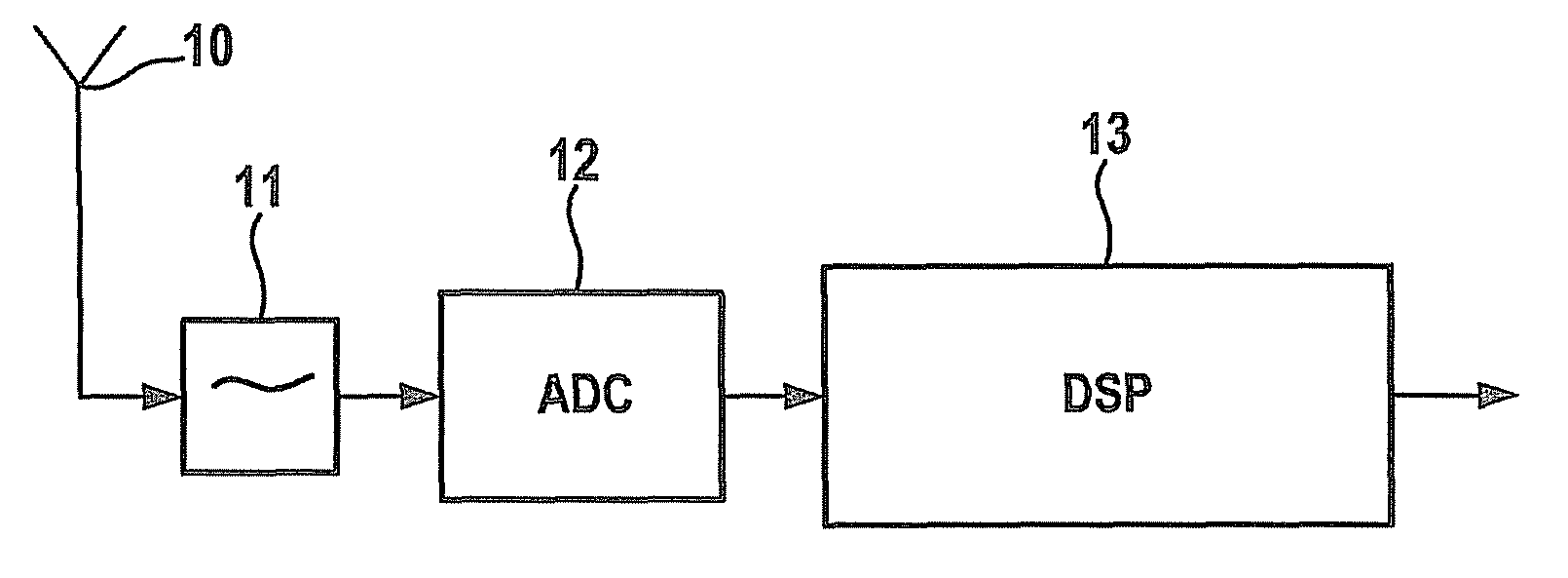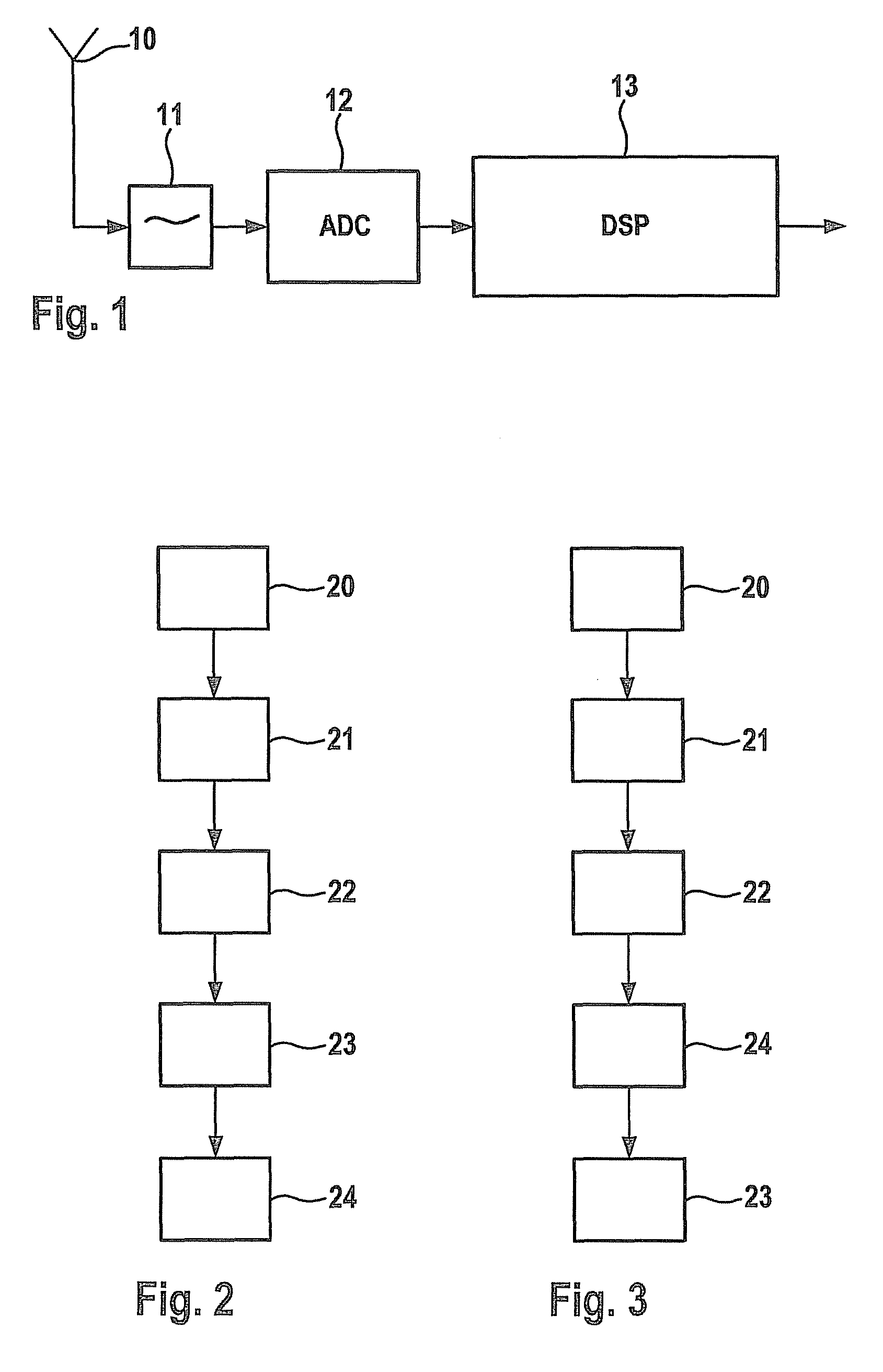Method and system for receiving radio stations
a radio station and receiver technology, applied in the field of receiving radio stations, can solve the problems of unsatisfactory construction cost and greatly reduced bandwidth of the receiver, and achieve the effect of improving the combination of signals of different transmitting frequencies even further
- Summary
- Abstract
- Description
- Claims
- Application Information
AI Technical Summary
Benefits of technology
Problems solved by technology
Method used
Image
Examples
Embodiment Construction
[0033]In an exemplary manner, FIG. 1 shows a system for the direct sampling of the entire FM band of a car radio receiver. The system includes an antenna 10, an HF preselector stage 11, an A / D converter 12 and a digital signal processing unit 13. HF preselector stage 11 includes, for instance, a band filter, in this context, possibly an amplifier and an AGC. Digital signal processing unit 13 may be a DSP, in this instance, and in it, as a function of the available calculating power, any desired number of channels of a radio station are able to be demodulated.
[0034]The flow chart of FIG. 2 shows a method for receiving radio stations according to a particularly preferred specific embodiment.
[0035]In FIG. 2 one may infer that first a frequency band is received 20, for instance, by an antenna. In an additional step, this received frequency band is then filtered using an HF preselector stage and perhaps amplified 21. The entire frequency band is then digitized 22 with the aid of a broadb...
PUM
 Login to View More
Login to View More Abstract
Description
Claims
Application Information
 Login to View More
Login to View More - R&D
- Intellectual Property
- Life Sciences
- Materials
- Tech Scout
- Unparalleled Data Quality
- Higher Quality Content
- 60% Fewer Hallucinations
Browse by: Latest US Patents, China's latest patents, Technical Efficacy Thesaurus, Application Domain, Technology Topic, Popular Technical Reports.
© 2025 PatSnap. All rights reserved.Legal|Privacy policy|Modern Slavery Act Transparency Statement|Sitemap|About US| Contact US: help@patsnap.com


